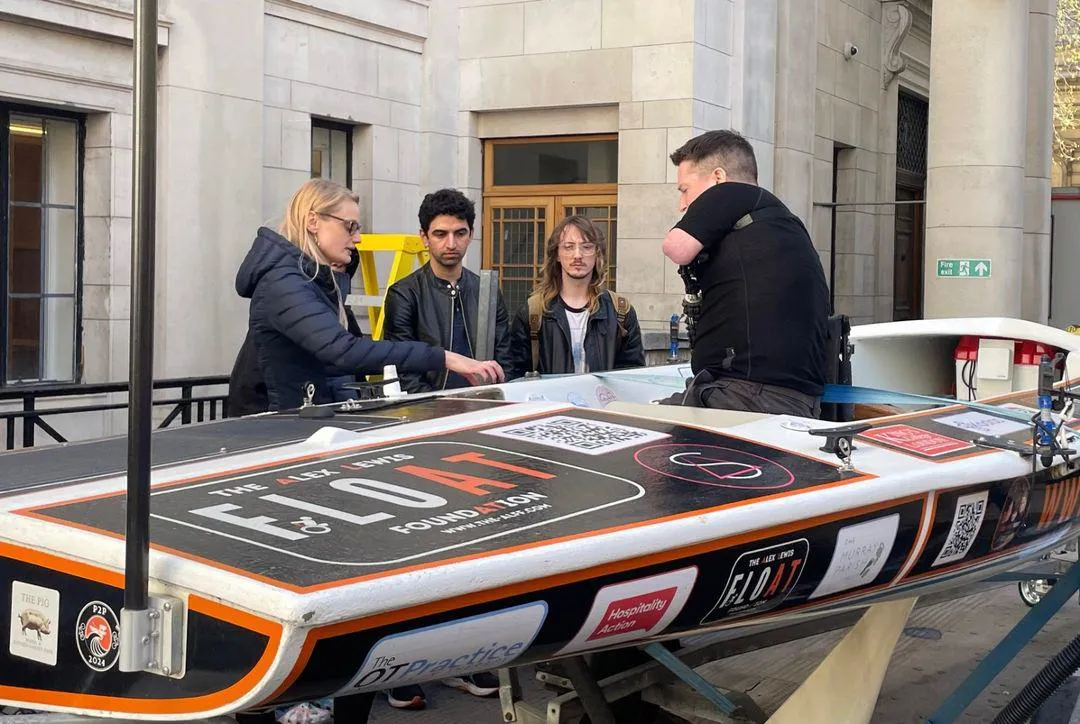Empowering limb difference: making sports accessible for all

One in five people worldwide live with a disability, equating to 1 billion people globally and approximately 15 million people in the UK. Despite the wide range of disabilities, people with disabilities represent the largest minority group on Earth.
Research has shown that individuals with disabilities are twice as likely to be physically inactive, with 43% not engaging in regular physical activity compared to 23% of people without disabilities. Limited access to adaptive equipment and inclusive opportunities continues to be a significant barrier to participation in sports. This project focuses on supporting individuals with limb differences, a growing community of 3.4 million people in the UK alone. Prosthetic devices significantly improve independence, inclusion, and quality of life, particularly when tailored to meet users’ needs and expectations. While commercial prostheses—especially those designed for upper limb differences—enable general-purpose use, they do not always support specialist activities such as competitive or recreational sports.
Many sports remain inaccessible due to a lack of adaptive equipment, preventing individuals with limb differences from fully engaging in physical activity. To address this challenge, we are co-developing assistive technology that allows people with limb differences to participate in sporting activities they currently are prevented from doing. Using a user-centred design approach, this project ensures that individuals with limb differences are actively involved in the creation of solutions that meet their specific needs. The initiative includes developing specialist adaptive equipment, such as a power-assisted rowing boat, enabling a quadruple amputee to complete a world-first solo row, and improving prosthetic limb interfaces to enhance functionality for sports like rowing. For example, the project will create a customised socket solution, allowing a Paralympian to securely wear their prosthesis while rowing, a challenge that currently prevents their participation.
This project builds on previous research and utilises smartphone technology to capture residual limb data, a method currently being advanced through an MRC IAA initiative. By combining digital innovation with co-production, the project aims to create highly tailored assistive solutions that expand accessibility, reduce barriers, and promote inclusion in sport. This initiative represents a crucial step in ensuring greater accessibility in sports, allowing individuals with limb differences to engage in physical activity, pursue competitive sports, and achieve personal milestones.
The long-term vision is to drive innovation in assistive technology, making specialized prosthetics and adaptive equipment more widely available, while supporting a more inclusive sports environment. By pioneering user-driven design and tailored technological solutions, this project aims to transform accessibility in sport, breaking barriers and empowering individuals with limb differences to achieve new levels of independence, inclusion, and performance.
"It is really exciting to be a recipient of this funding, as it will allow new solutions to be co-developed to improve accessibility in sports and beyond."
- Dr Nicola Bailey, Senior Lecturer in Engineering
Expected Impact
The project will:
- Strengthen understanding of user-needs, wants and expectations for partaking in sports.
- Explore Paralympic equipment regulations and inaccessible sport for those with diverse limb differences.
- Co-create with disability advocates student projects that will craft usable prototype prostheses.
- Co-develop assistive technology, including assistive rowing boat, and a socket and linear system.
- Disseminate the work to different audiences.
- Initiate routes to market for developed technology.
The long-term outcome is to provide new technology globally, removing barriers for sport participation.
Partners and Collaborators
- King's Department of Eningeering
- King's Faculty of Natural, Mathematical & Engineering Sciences
- King's Faculty of Life Sciences & Medicine
- King's School of Basic & Medical Biosciences
- King's Research Management and Innovation
- The University of Bath
- The Alex Lewis FLOAT Foundation
- David Hill: Paralympian, Athlete Mentor, Personal Trainer & Swim Coach
Project Team
- Dr Nicola Bailey, Principal Investigator
- Dr Irene Di Giulio, Principal Investigator
- Dr Verity Buckley (RMID), Team Member
- Kenji Newton, Team Member
- Dr Ana Rubio Denniss, Team Member & Investigator
- Dr Elena Seminati (University of Bath), Team Member & Investigator
This project is supported by the One King’s Impact Fund
The One King's Impact Fund is part of One King’s Impact, King’s strategic programme to support and accelerate work within and beyond the University which creates positive change for people, planet and society.
Empowering limb difference responds to the following Impact Priorities:

Principal Investigators
Affiliations
Funding
Funding Body: One King’s Impact Fund
Amount: £49,990
Period: August 2025 - September 2026


